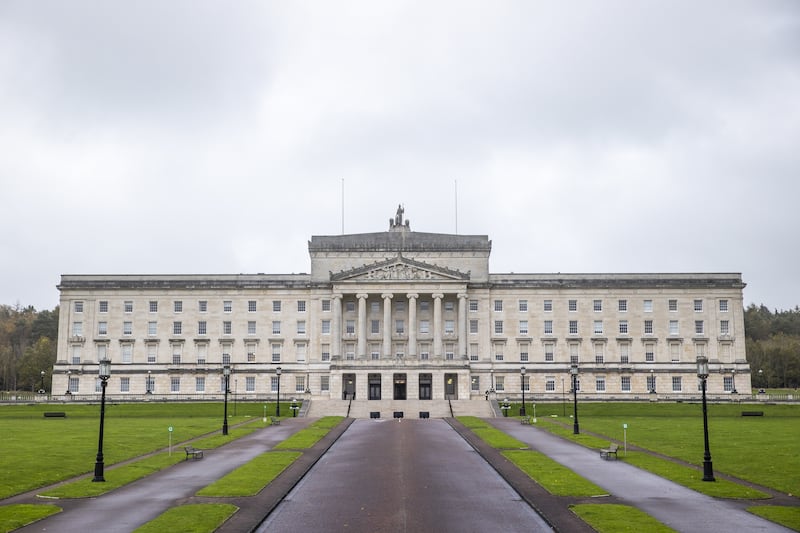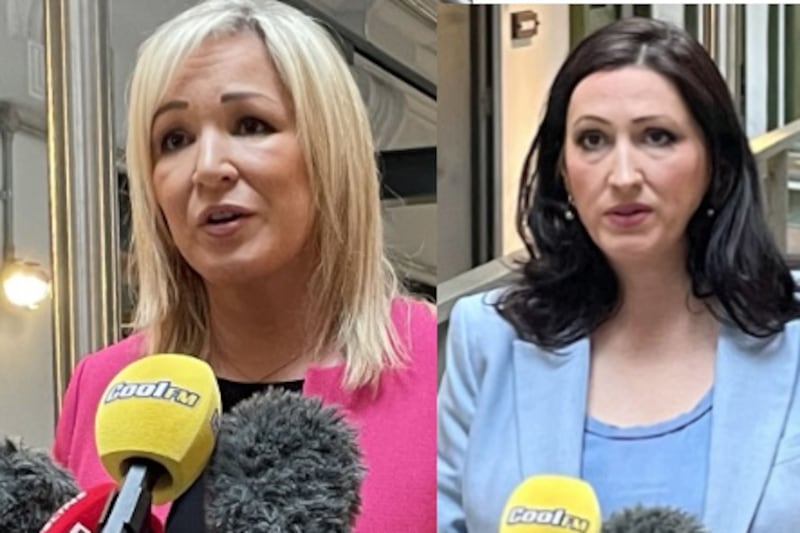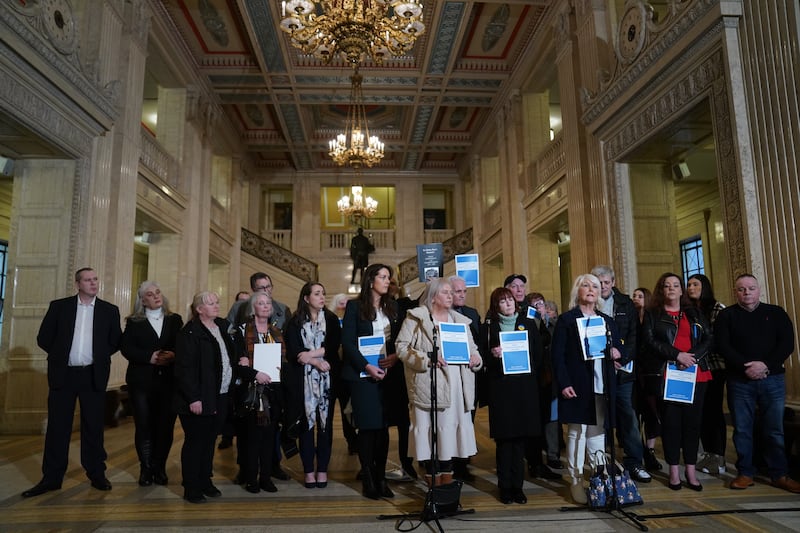So where do we go to from here? After hints of imminent deals and suggestions that seemingly insurmountable differences were close to being bridged, talks aimed at restoring power-sharing collapsed on Wednesday of last week. It was all too predictable. Few could really have expected that the DUP and Sinn Féin could have come to an accommodation over an Irish language act that no unionist politician would accept.
And yet as Prime Minister Theresa May and Taoiseach Leo Varadkar swept into the north last Monday they seemed to be under the impression a deal was almost over the line.
Perhaps their advisers had already pencilled in a Good Friday Agreement-style photo shoot, with a beaming Mrs May and Mr Varadkar signing the key document that would restore power-sharing just over a year after the executive collapsed.
Instead, a mournful prime minister had to face reporters on a dark and freezing February night at Stormont and urge the parties to make a “final push”, all the while knowing that an agreement was as likely as Jacob Rees-Mogg turning up to Westminster in a baseball cap and tracksuit.
We will never know for certain if the two main parties did almost reach agreement on three separate pieces of legislation: an Irish language act, an Ulster Scots act and a ‘respecting language and diversity act’ – whatever that was.
Ulster Unionist leader Robin Swann made a decent suggestion by calling on the DUP and Sinn Féin to publish their negotiating documents.
“This is going to run and run until we get to the truth of the matter and at the minute that can only be established by both parties being honest and upfront,” he said.
Honest and upfront do not tend to be words associated with Stormont negotiations. But Sinn Féin president Mary Lou McDonald’s synopsis of the draft deal did have a ring of truth about it.
With no clear sign of any new discussions, DUP leader Arlene Foster has already insisted that Mrs May must introduce direct rule and strike a regional budget. It was a curious demand given that Mrs Foster had described the prime minister’s visit to Belfast last week as a “bit of a distraction”. Her colleague Simon Hamilton stuck the knife in further by claiming Mrs May and Mr Varadkar’s visit was not “entirely helpful in getting us to reach a successful conclusion”. All this from a party whose 10 MPs are helping to prop up Mrs May’s government. They must be incredibly confident in their own power over the Tories – not a position which bodes well for the continuing row over border arrangements after Brexit.
Secretary of State Karen Bradley, who is already looking like an irrelevance, found herself having to defend Mrs May’s visit.
“The prime minister is the prime minister of Great Britain and Northern Ireland and it is absolutely right that she should come and visit Northern Ireland,” she said at a press conference which for some reason was held in a Belfast shopping centre.
It is a bizarre state of affairs when the largest unionist party decides to complain about a visit to the north by the prime minister. And it is odder still that by insisting on the return of direct rule, Mrs Foster would effectively make her deputy, North Belfast MP Nigel Dodds, the most powerful man in the DUP.
Rather like Mrs May, Mrs Foster has the slightly desperate air of someone who wanted to make a deal but could not get the rest of her party to agree. East Derry MP Gregory Campbell’s insistence that her leadership was not in danger sounded more like a death knell than an endorsement.
Now we face the prospect of Mrs Bradley having to set an emergency budget to keep our public services afloat. And with Tánaiste Simon Coveney insisting that a return to direct rule is not inevitable, we can look forward to more months of wrangling over how the north should be temporarily governed.
Voters could be forgiven for wondering what the point of last year’s assembly elections actually was.
One frustrated Derry woman told RTÉ last week “they should put the whole lot of them in a boat and put them out to sea with no oars or stop their wages”.
Sadly, it’s the north itself that’s at sea and we have no-one to steer the boat.








